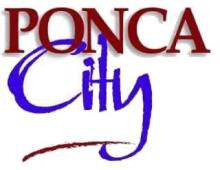Transcript: Community Broadband Bits Episode 235
This is the transcript for episode 235 of the Community Broadband Bits Podcast. Lee Brown and John Williams from Erwin, Tennessee, join Christopher Mitchell to talk about the incremental build out of a Fiber-to-the-Home network. Listen to this episode here.
Lee Brown: The great thing about municipal broadband is it allows each community to decide what's right for them. We're in the greatest place of all time is being able to make that decision to do what's right for your community.
Lisa Gonzalez: This is episode 235, of the Community Broadband Bits Podcast from the Institute from Local Self-Reliance. I'm Lisa Gonzalez. We wanted to interview folks from Erwin, Tennessee for some time, now, and this week we're lucky to have them. The community, population around 6,000, has been building out a Fiber-to-the-Home system incrementally for the past few years. In addition to improving connectivity for residents and local businesses, the network has improved operations for the municipality's other utilities. Today, Christopher talks with Lee Brown, general manager of Erwin Utilities, and John Williams, fiber engineer. Lee and John, describe how the community had carefully considered what was best for them, before pursuing a fiber network. As it turns out they had considered fiber for a while before the circumstances were right to deploy. They started with a pilot program, and the network continues to grow. John and Lee offer Erwin's rational for the incremental approach, and share the way the network has improved services for all utility customers. Not only those that take Internet access services. Now, here's Christopher talking with Lee Brown, general manager, and John Williams, fiber engineer from Erwin Utilities in Erwin, Tennessee.
Christopher Mitchell: Welcome to another edition of the Community Broadband Bits Podcast. I'm Chris Mitchell, and today I'm speaking with two gentlemen from Erwin, Tennessee. We'll start with Lee Brown, the general manager of Erwin Utilities. Welcome to the show.
Lee Brown: Thanks, Chris. We appreciate being able to be part of this, today.
Christopher Mitchell: We also have with us, John Williams a fiber-optic engineer for Erwin Utilities. Welcome to the show.



